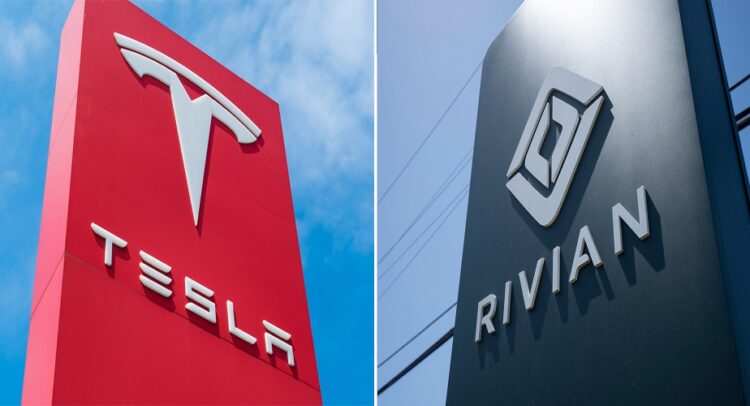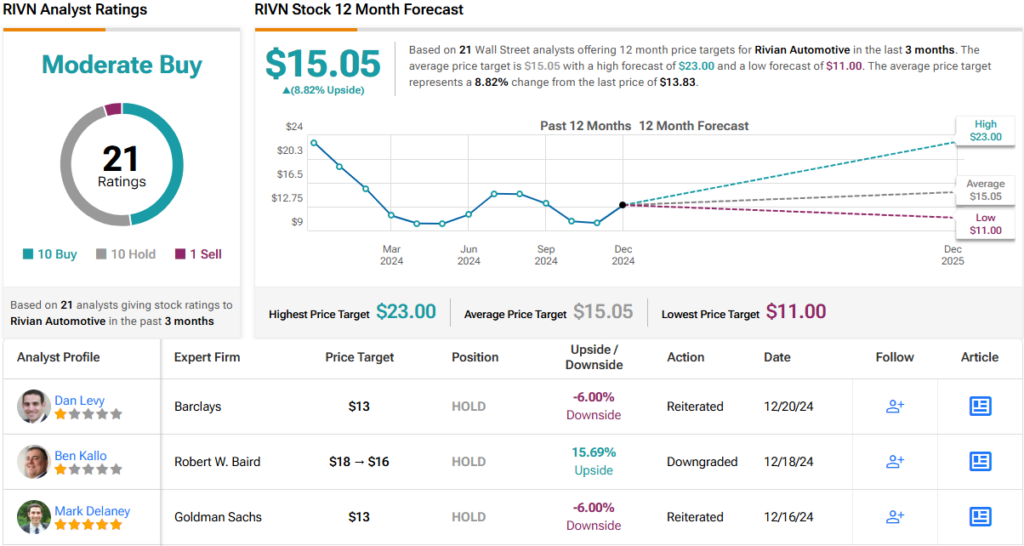Events have been gathering speed since last month’s election, reminding us of Ferris Bueller’s classic line, “Life moves pretty fast. If you don’t stop and look around once in a while, you could miss it.”
Stay Ahead of the Market:
- Discover outperforming stocks and invest smarter with Top Smart Score Stocks
- Filter, analyze, and streamline your search for investment opportunities using Tipranks' Stock Screener
So let’s look around at the electric vehicle industry. EVs are likely to lose a substantial portion of their governmental support when the new Trump administration takes office, and that has both analysts and investors working to figure out how the sector landscape will take shape in the next few months.
As Baird analyst Ben Kallo puts it, “We see the landscape for both EVs (inclusive of supply chain) and Renewables as more challenging in the near future due to uncertainty regarding the IRA and growth in 2025.”
But all of that doesn’t mean there aren’t opportunities to seek out in the EV sector. After reviewing sector leaders Tesla (NASDAQ:TSLA) and Rivian (NASDAQ:RIVN), Kallo identified the superior stock to buy. We’ve opened up the TipRanks database to look at the broader Wall Street picture on both of those stocks; here is what we’ve found.
Tesla
Let’s dive into Tesla, the electric vehicle powerhouse led by Elon Musk. Under his leadership, Tesla has emerged as the only profitable EV maker in the U.S. and the undisputed king of automotive stocks on Wall Street, with a staggering market cap of $1.35 trillion.
The company’s automotive division is its primary revenue driver, accounting for roughly 80% of total revenue. Beyond its flagship EV business, Tesla has diversified into several other ventures and is actively advancing technologies that complement its core operations. This includes groundbreaking work in AI, particularly in automotive applications and autonomous robotics, with the end goal of developing and producing fully independent self-driving vehicles.
Autonomous vehicles are widely regarded as the future of the automotive industry. While the Trump administration is expected to scale back EV subsidies, it is also anticipated to promote research in AI and autonomous vehicle technologies – a policy shift that could play to Tesla’s strengths. Moreover, Musk’s ties to Trump and the incoming administration are well-known, having received a great deal of press recently.
While a cynic might say that Musk’s ties to the incoming administration are the main support for Tesla going forward, it’s important to remember, as pointed out above, that Tesla is the only profitable pure-play EV company in the US markets. The company reported $25.2 billion in total revenue in its 3Q24 report, a total that was up 7.8% year-over-year – although it missed the forecast by $490 million. On earnings, Tesla realized 72 cents per share in non-GAAP EPS, beating the estimates by 12 cents per share.
Analyst Ben Kallo, in his coverage of Tesla for Baird, says of the company: “Musk’s ties to President-elect Trump have intensified an already bright spotlight on TSLA and have been met with an overwhelmingly positive stock reaction since the election. The stock has gained significant momentum and has several upcoming potential catalysts. We like the stock long term and would be buyers on pullbacks.”
To this end, Kallo gives TSLA shares an Outperform (i.e. Buy) rating, along with a price target of $480 that indicates his confidence in a 14% upside for the coming year. (To watch Kallo’s track record, click here)
Overall, Tesla shares have 34 recent analyst reviews on record, including 13 Buys, 12 Holds, and 9 Sells, for a Hold (i.e. Neutral) consensus rating. The stock has posted strong gains since the election, which have pushed it above the average price target. The current share price, of $421.06, and average price target, of $293.76, point to a one-year downside of 30%. (See TSLA stock forecast)
Rivian Automotive
Let’s turn our attention to Rivian Automotive, one of the pure-play EV companies in the US electric vehicle segment. Rivian stands out for two key reasons: it successfully navigated its pre-production development phase and introduced a unique car design enabling rapid changes to both hardware and styling.
Rivian’s vehicles are based on a chassis the company dubs its ‘skateboard.’ It’s a flat platform with wheels at the four corners – and it’s equipped with a variety of fittings that allow for several different types of electric motors, a whole range of control equipment, and several different styles of bodywork and interior fittings. Rather than a traditional drivetrain, the chassis supports independent motors at each wheel, a configuration that saves weight and still provides high performance. The chassis can also take different sizes of battery packs, depending on the end configuration of the vehicle and the space afforded by the body styling. It’s a highly adaptable system, designed from the start to facilitate an easy manufacturing process.
The manufacturing process is carried out at Rivian’s assembly plant in Normal, Illinois. The company acquired the plant in 2017, and today the facility boasts 2.6 million square feet and can handle general assembly, paint and bodywork, and end-line finishing. It’s currently Rivian’s only online production plant and produces both variants of the company’s R1 vehicle – the R1S and the R1T – as well as Rivian’s commercial delivery van.
Earlier this year, Rivian closed an agreement with Volkswagen, establishing a joint venture (JV) partnership under which both companies will develop new vehicle software. VW has already invested $1 billion in Rivian as part of the agreement, and future investments from VW, totaling up to $4 billion, are planned.
This partnership comes at a crucial time for Rivian. In its 3Q24 financial report, the company reported revenues of $874 million, primarily driven by deliveries of 10,018 vehicles. However, this marked a 35% year-over-year decline and fell short of forecasts by $136 million. On the bottom line, Rivian posted a non-GAAP EPS loss of 99 cents per share, missing estimates by 9 cents.
Kallo sees Rivian as positive for the long-term, but iffy in the short-term. He writes of the company, “With the Volkswagen JV having recently closed and DOE funding announcement (a positive surprise) in the rearview, we see few catalysts in 2025 and expect shares to languish with EV sales, which may be sluggish relative to expectations. We remain positive on RIVN’s product/brand and the long-term opportunity which remains intact.”
Based on the above, the Baird analyst puts a Neutral rating on RIVN shares, along with a $16 price target that implies a one-year upside of 16%.
Overall, Rivian’s stock has a Moderate Buy consensus rating from the Street, based on 21 recent analyst reviews that break down to 10 each Buy and Hold plus 1 Sell. The shares are trading for $13.83, and their $15.05 average price target suggests an upside for the coming year of ~9%. (See RIVN stock forecast)
With the facts laid out, it’s clear that Baird analyst Ben Kallo has picked out Tesla as the superior EV stock to buy heading into 2025.
Disclaimer: The opinions expressed in this article are solely those of the featured analyst. The content is intended to be used for informational purposes only. It is very important to do your own analysis before making any investment.











